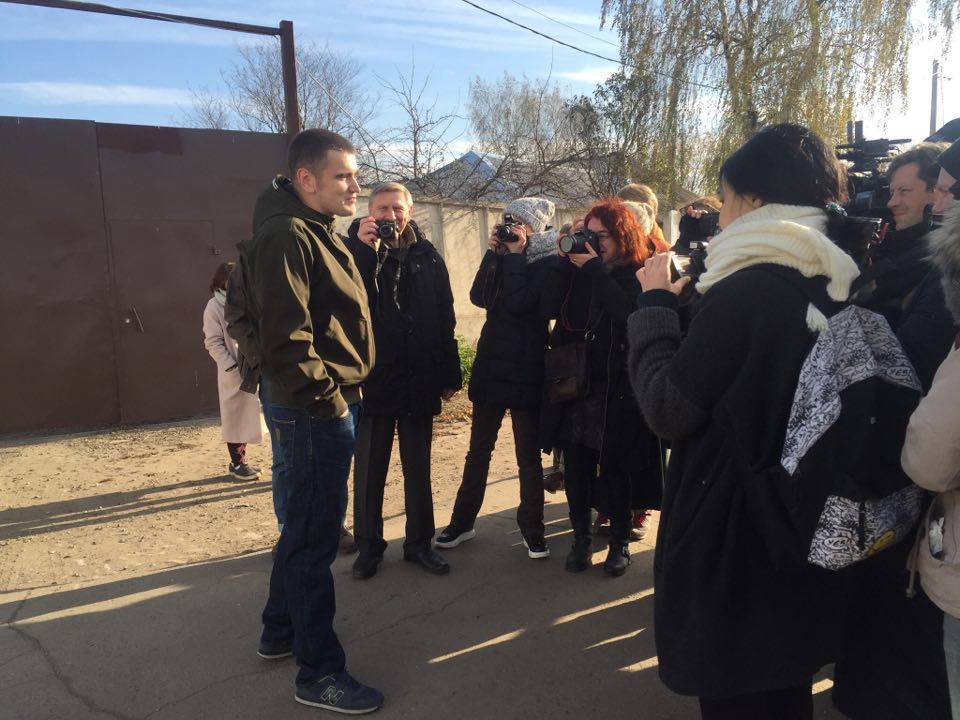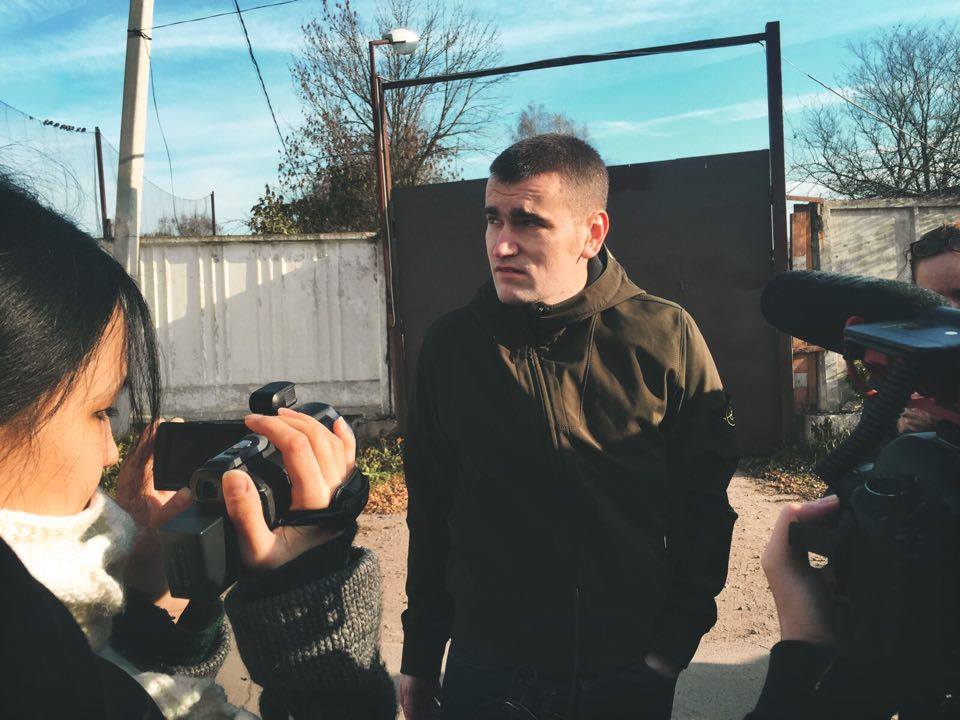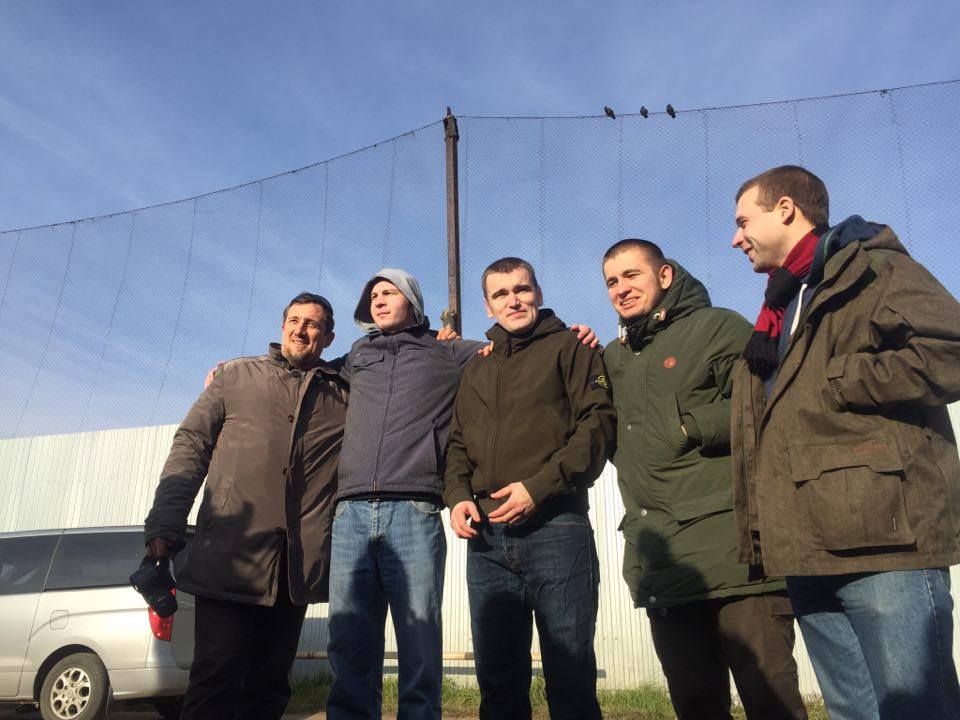 Focus group drawing from the study “Autumn Change in the Minds of Russians: A Fleeting Surge or New Trends?” The first panels is labeled “Now.” The second panel shows a drunken Russia at the bottom of the stairs “in five years,” while “the US, Europe, Canada, China, [and] Japan” stand over it dressed in swanky business suits. The third panel is entitled “Friendship.” Source: Fond Liberalnaya Missiya
Focus group drawing from the study “Autumn Change in the Minds of Russians: A Fleeting Surge or New Trends?” The first panels is labeled “Now.” The second panel shows a drunken Russia at the bottom of the stairs “in five years,” while “the US, Europe, Canada, China, [and] Japan” stand over it dressed in swanky business suits. The third panel is entitled “Friendship.” Source: Fond Liberalnaya Missiya
Experts Who Predicted Bolotnaya Claim Attitudes of Russians Have Changed
Vladimir Dergachov
RBC
December 24, 2018
Economists Mikhail Dmitriev and Sergei Belanovsky, and psychologists Anastasia Nikolskaya and Elena Cherepanova have authored a new report, “Autumn Change in the Minds of Russians: A Fleeting Surge or New Trend?” which they will present on Monday, December 24.
RBC has obtained a copy of the study. It was conducted as a follow-up to previous autumn opinion polls, which identified a loss of interest in foreign policy among Russians, growing dissatisfaction with domestic policy, and a collapse in reliance on the government.
How the Study Was Conducted
The experts combined qualitative sociology and psychological tests [sic], comparing the results with the Levada Center’s polling data. In October and November 2018, respondents in Moscow, Vladimir, Gus Khrustalny, Yekaterinburg, Krasnoyarsk, Saransk, Romodanovo (a village in Mordovia), and Ufa were surveyed as part of focus groups. In Moscow, a number of focus groups were convened involving public sector employees, including physicians, and university lecturers and researchers from the Russian Academy of Sciences (RAN). There was also a mixed focus group featuring engineers, traffic police officers, and theater employees.
Peace Instead of Scandals
Previous surveys, conducted by Dmitriev and Belanovsky in April and May 2018, showed Russians largely supported the country’s foreign policy, although critical respondents said the country spent too much money on supporting other countries and used foreign policy to distract people from issues at home. Six months later, the statements made by respondents revealed a demand for a peaceable foreign policy. “Spy scandals, falling missiles, certain statements by Russian politicians, and the protracted war in Syria” have led to a downturn in support for Russia’s foreign policy, the report claims.
In the May 2018 study, respondents were not yet pessimistic about the future. In the October surveys, however, a majority (68%) of respondents had a negative attitude towards the future. They envisioned a Russia that, in five years, was weakening and lagging behind other countries in terms of progress, a country whose populace was intimidated and did not have the right to vote.
They Predicted the Bolotnaya Square Movement
In March 2011, Dmitriev and Belanovsky, then employed at the Center for Strategic Development (TsSR), presented a report in which they alleged a profound political crisis had emerged, and support for Vladimir Putin, Dmitry Medvedev and United Russia had fallen off. They predicted increasing dissatisfaction with the political system. Less than a year later, sparked by insufficiently [sic] fair and transparent elections to the State Duma, large-scale protests kicked off in Russia.
Self-Expression Instead of Survival
In the May study, the demand for justice had increased dramatically, shunting aside the previously dominant demand for a strong leader. In October, the invocation of distributive justice (a more equal distribution of income and assets) gave way to the demand for procedural justice (equality of all before the law).
The respondents in all the focus groups felt physical needs and government welfare were less important than the need for respect, liberty, and leaders capable of voicing these values. Harsh statements by public officials on social issues (i.e., that people could live on 3,500 rubles a month by eating macaroni, etc.) had provoked increasing irritation. Concerning the raising of the retirement age, the respondents negatively assessed the suddenness of the decision and the way it was made behind closed doors.
Ninety-four percent of respondents claimed they no longer relied on the government, only on themselves. Sixty-three percent of respondents expressed a willingess to contribute personally to the country’s progress. This contribution was conceived in different ways: from a willingness to pay high taxes and be involved in charitable work, to grassroots activism and educational outreach. According to a Levada Center poll, 60% of respondents felt responsible and were willing to make personal efforts to facilitate improvements in Russia.
A Demand for Change
The May study testified to a slackening of reliance on a strong leader among Russians. In October, the analysts registered a demand for new leaders who would respect people, be honest and democratic [sic], admit to their mistakes, and act in the people’s interest. These qualities were bound up with the values of self-expression, which were foregrounded by respondents.
These qualities had little in common with the positive and negative qualities Russians [sic] had used to assess Vladimir Putin in a July poll by the Levada Center (stability, respect, personal charm, capacity for compromise, firmness, and foresight). The discrepancy in criteria was a sign of the rudimentary emergence of counter-elite sentiments [sic], the researchers warned.
A growing demand for change was noted among the respondents. Up to 76% of respondents would be willing to support temporarily painful reforms vital to overcoming the crisis in Russia. Russians no longer demanded immediate improvements. They were willing to wait and endure hardship for the sake of a positive ultimate income.
The respondents had almost no substantive notions of the necessary reforms. The experts compared public opinion to an “empty vessel” waiting for new leaders who inspired confidence.
None of the focus groups voiced aggression towards the regime, but the willingness to get involved in social movements had grown. The demand for respect and freedom prevailed over other demands, and thus the struggle for respect was imagined by the respondents as peaceable and legitimate.
Negativism towards the regime was no longer associated with a demand for populism, whose tokens include the appeal to distributive justice and anti-immigrant sentiments.
Frustation of Public Sector Employees
The report devotes a entire section to moods in the study’s public sector worker focus groups. The researchers discovered the highest level of tension among these people.
Public sector employees were frustrated not because of financial problems [sic], but because of the sector’s irrational organization [sic]. For example, due to the May 2012 decree on raising salaries, the managers of many public sector organizations took some workers off payroll, dramatically increasing the workload of other employees. The respondents were also dissatisfied with the avalanche of reports due to increasing bureaucratization, the chronically poor quality of management, and the fact that personal loyalty to bosses had replaced professionalism in the management hierarchy.
Three Scenarios
According to the experts, these trends indicate Russian public opinion has moved beyond the “stasis” of the post-Crimean consensus. They paint three possible scenarios for further changes in public opinion. The first would involve returning to “rallying around the flag,” typical of the post-Crimean period. This scenario would become a reality if international conflicts involving Russia escalated dramatically.
The second scenario would involve a rollback to counter-elite populism [sic] due to negative economic changes.
The third scenario foresees the consolidation of new values in the public’s mind over a lengthy period. This turn of events is likely if the status quo in the economy and foreign policy is maintained, that is, given sluggish economic growth and the absence of intense international conflicts. The experts cite Iran as an example of a country where this scenario has come true [sic]. Eighty percent of Iranians were born after the Islamic Revolution and have no experience of life under the previous regime. Due to the economic difficulties caused by western sanctions, young Iranians are tired of permanent crisis and disapprove of the country’s costly expansionist foreign policy. The unfavorable socio-economic conditions have a generated a demand for a alternative secularized and westernized lifestyle among young people.
In this scenario, the experts suggest altering the way the regime interacts with the populace in order to diminish its growing negativity. This is doable as long as the populace manifests no aggression towards the regime and is open to constructive dialogue.
The researchers note this scenarios contradicts the prevailing international trend of populists taking power. Unlike the societies of many developed countries, Russians have not descended into archaic populism and “social infantilism,” displaying instead increased social maturity and responsibility for the state of affairs in Russia [sic].
A Long-Term Shift
Political consultant Dmitry Fetisov generally agrees with the study’s findings. He links society’s growing demand for a peaceful foreign policy with the fact the Kremlin demonstrated a successful example of this policy during the 2018 FIFA World Cup [sic], and the critical attitude of public sector employers towards the regime with the pension reform. Fetisov argues, however, that these trends could change depending on how the Kremlin acts.
Political scientist Nikolay Mironov is certain these shifts in public opinion are long term. He argues the trends described in the study have been caused by the post-2014 economic stagnation. Mironov does not believe a return to the “rally around the flag” consensus is possible, even in the event of international conflicts, unless they impinge on Russian territory. Mironov concludes what is needed are large-scale economic reforms and an easing of foreign policy.
Levada Center sociologist Denis Volkov also notes the growing criticality of respondents towards officialdom and public fatigue from assistance to other countries [sic]. However, Volkov argues it is wrong to chart changes in public opinion by comparing surveys of focus groups, rather than using quantitative research. Fetisov likewise points to the study’s lack of representativeness, as it is based on comparing the opinions of different focus groups.
Translated by the Russian Reader
This article and the research paper it purports to summarize and analyze should be read with a huge spoonful of salt.
First, “public opinion” polls in Russia are wildly unreliable, as I have tried to show over the years on this website, often with a leg up from likeminded Russian journalists and researchers.
Second, this study, apparently, is a funhouse mirror image of the usual “Putin’s wild popularity” poll. The economists and psychologists who wrote the report set out to detect a “positive” sea change in Russian public opinion and, God willing, they found it, by offering their focus group respondents a weak-tea pipe dream they obviously dream themselves. If that dream seems rife with contradictions, it is, although the researchers seem utterly unaware of them.
Third, even in a country as messy, corrupt, and authoritarian as Russia, the idea that people can rely only on themselves is absurd. Of course, they rely on the government for lots of things, at least if they are living in more or less large towns and cities. To the extent that libertarianism has become popular here, it has done so only as a consequence of the prevailing black political reaction, as cultivated by the Putinist state and its propaganda organs.
On the other hand, we are supposed to imagine these newly minted libertarians would be simultaneously willing to pay high taxes and endure hardships to make their country a better place, and yet this is supposed to happen without the “social infantilism” of “developed countries” where people protest on the streets against elites.
Given that the once-mighty RBC has long been a shadow of its former self, I was tempted to write this passage off as ad-libbing on the part of their reporter, but, in fact, he merely paraphrased the report’s authors, to wit:
“In contrast to the societies of many developed countries, whose populace continues to slide into archaic populism and ‘social infantilism,’ the Russian populace has surprised everyone by beginning to show increased social maturity and responsibility for the state of affairs in the country. These qualities [were] associated with the modernized value system of the developed countries before the wave of counter-elite populism engulfed them.”
As this blog has shown over the last eleven years, I have often been among the first to celebrate and chronicle emergent grassroots resistance and social movements in Russia, but the people who wrote the passage above were engaging in wishful thinking, not scholarship. If anything, their counterintuitive, baseless conclusion shows the contradictions of the newfangled method of governance at arm’s length I have dubbed the “pollocracy.”
The pollocracy has been used by the regime to monitor “public moods” while also explicitly and aggressively shaping that mood by asking pointed questions that countenance only certain answers.
On the other hand, it is used by the regime AND its allegedly liberal pseudo-critics to, alternately, register tremors of discontent among an otherwise disenchranchised and disempowered populace, and demonstrate these exact same people are routinely subject to all sorts of illiberal, irrational populist delusions and phobias, thus making them unfit to govern themselves.
Finally, the pollocracy has been used as a substitute for actual, full-fledged grassroots political involvement. A populace that “slides” into “archaic populism” and “social infantilism” is one thing (a bad thing), but a populace that meekly agrees to confine its dissent to skewed public opinion polls and hokey focus groups is both “socially mature” and not a threat to anyone, least of all to the current Russian regime.
It is especially telling these “socially mature” focus groups expect, allegedly, a less aggressive Russian foreign policy to emerge ex nihilo, merely because they wish it into existence in the safety of their anonymous focus groups. God forbid they should have to organize a national anti-war movement on their own. {TRR}
 Protest rally in Abakan against plans to raise the retirement age. Photo by Alexander Kryazhev. Courtesy of RIA Novosti and Republic
Protest rally in Abakan against plans to raise the retirement age. Photo by Alexander Kryazhev. Courtesy of RIA Novosti and Republic





























